The transition from athlete to entrepreneur is a fascinating journey filled with valuable lessons and skills. As athletes move from the sports arena to the corporate landscape, they bring with them a unique set of attributes honed through years of dedication and hard work. In this article, we’ll explore the remarkable success stories of athletes-turned-entrepreneurs, uncovering the practical skills and experiences from their sporting careers that have paved the way for their triumphs in business. From teamwork and resilience to leadership and adaptability, we’ll discover how these qualities play a pivotal role in their entrepreneurial endeavors, offering inspiration and insights for aspiring athletes and business enthusiasts alike.

Will Bartholomew, Founder & CEO, D1 Training
I spent my entire career in the world of sports, working my way up to the NFL when I was faced with two ACL injuries. After my second injury, I began training in hopes of making it back to the pros, but quickly found my passion refocused on business. As a side job, I began training kids back in my hometown of Nashville where I have strong ties as a multi-sport state champion and high-school football player who later went on to play at the University of Tennessee as Peyton Manning’s fullback. The side job has since turned into D1 Training – a leading fitness franchise that spans 100+ locations.
The Skills I Gained on the Field Translated to the Boardroom
Toughness: Whether you’re an NFL superstar or a startup entrepreneur, you must accept that not everything goes your way —you’re up against a tough competitor, you lose a game, you’re faced with an unpredictable obstacle, a financial challenge, etc. In sports and business, true tests cultivate perseverance and you learn quickly that mental toughness matters.
Discipline: In football, you mentally prep, study film, practice, etc. Operating a business should follow a similar rhythm. Having a game plan to follow will encourage you to be more disciplined and hold yourself accountable when it comes to reaching your business goals.
Self-Awareness: As an athlete, you need to be aware of both your strengths and weaknesses. This enables your team to effectively complement your shortcomings, while also allowing you to tailor your training regimen to make continuous improvements. The same is true for business leaders. By being self-aware, you’ll be able to take note of the areas you excel in and the areas you need support. From there, you can build the right team to help your business succeed.
Focus: To excel in the NFL, you must be a master of your craft, which requires an abundance of focus and dedication. It’s great to have a big-picture goal like winning the Super Bowl or reaching one million dollars in sales but to get there, you have to focus on the smaller tasks at hand. Consider each task as a vital building block contributing to the foundation of your business’s success. Take a moment to sit down and fully immerse yourself in the state of your business while focusing on how you want it to grow.
Celebrate: The NFL is known for its touchdown celebrations, but don’t reduce these moments to goofy stunts as they provide value to the team. Celebrations build camaraderie and generate momentum – big and little wins should be celebrated. The strongest teams that achieve the best results are often those that empower each team member to go above and beyond by celebrating their accomplishments. Build a celebratory culture that will keep your team motivated, and the results will follow.

Paige Arnof-Fenn, Founder & CEO, Mavens & Moguls
I was an athletic kid who attended sports camp for seven summers and lettered in three sports in high school (soccer, cross country, and track). I played intramural sports in college and tennis/golf for fun as well. I think playing sports is a business advantage. It gives you confidence and teaches you about teamwork, responsibility, fairness, resilience, and the language too. Learning how to be tough competitors on the field/court, leaving it all out there then going out after as friends win or lose is a great life lesson. I know a lot of successful business leaders who were athletes growing up; they have a history of setting goals, working hard, and understanding what makes teams thrive. I am not surprised Magic Johnson, Serena Williams, and Peyton Manning have been successful in business too. They are determined with strong work ethics and know what it takes to win.
Many business leaders were student-athletes before running a company like me. I think what makes us great employees is the fact we are high-energy, disciplined, team players, have a strong work ethic, and are good at time management. These are all great qualities and skills that serve you well in an organization and on the field or court. Athletes are typically also great at water cooler talk and can play in company softball leagues, golf tournaments, etc., which can help your career through networking. I love hiring athletes when recruiting.
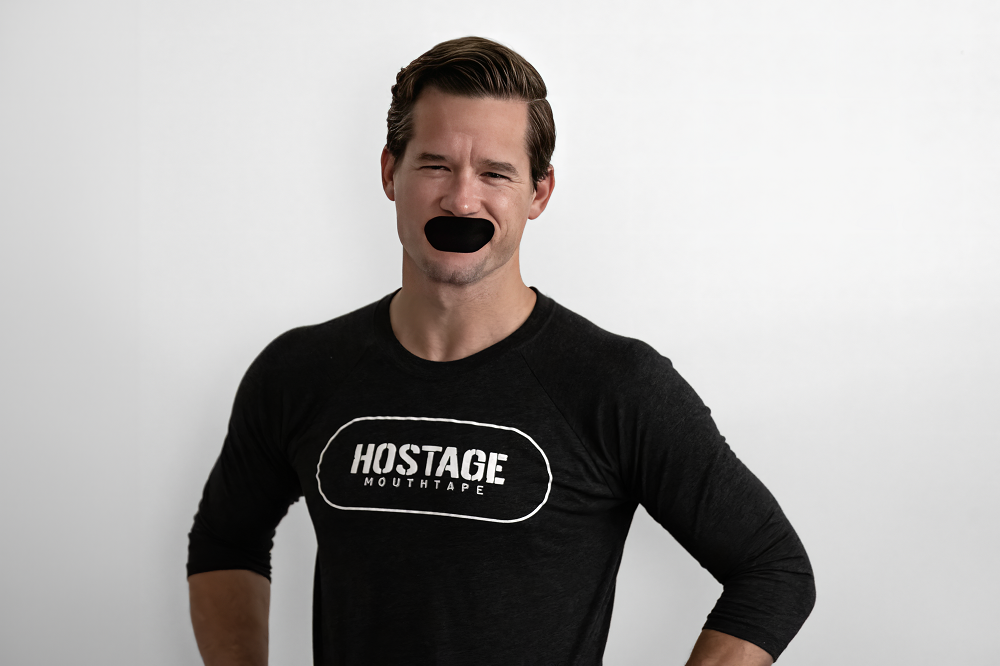
Alex Neist, Founder and CEO, Hostage Tape
I have learned throughout my life that “you can do anything you dream of, as long as you work hard enough for it.” I have always been a bit of an underdog my entire life. When I was in high school, I wasn’t the player that everyone was recruiting, and no one even thought I would be a starting quarterback, but I knew I could play and knew I was talented. Despite the doubts of everyone around me, I believed that I could get the starting quarterback position and play in college. That manifestation soon became a reality as I made it to a professional football league through the same hard work and determination that got me a starting quarterback in high school. In the football world, I was a nobody. Quickly, however, I was thrown into playing alongside well-known players who came from top programs all around the country. I remained determined as I was trying to invalidate everyone’s preconceived notions about me. My “underdog” mindset enabled me to start a thriving business and once again prove everyone wrong. I know I can do whatever I want when I work hard enough.

Jenny Melrose, CEO & Business Strategist, jenny melrose
As a former two-sport college athlete (basketball and field hockey), the discipline I learned from training for two sports has definitely made me a successful entrepreneur. At an early age, I learned that I needed to be diligent in my training and practice for both sports. As a 5’4″ shooting guard who was forced to learn to play point guard, my training enabled me to score over 1,000 points and still hold three-point records today.
My training led me to be intrinsically motivated to succeed on and off the court. I learned to set attainable goals but sometimes seemed out of reach. I wasn’t afraid to take risks and knew that the uncomfortable feeling was growth. As long as I failed forward and learned from it then my business would continue to succeed and grow.
I am the entrepreneur that I am today because of the tenacity I was taught through sports.
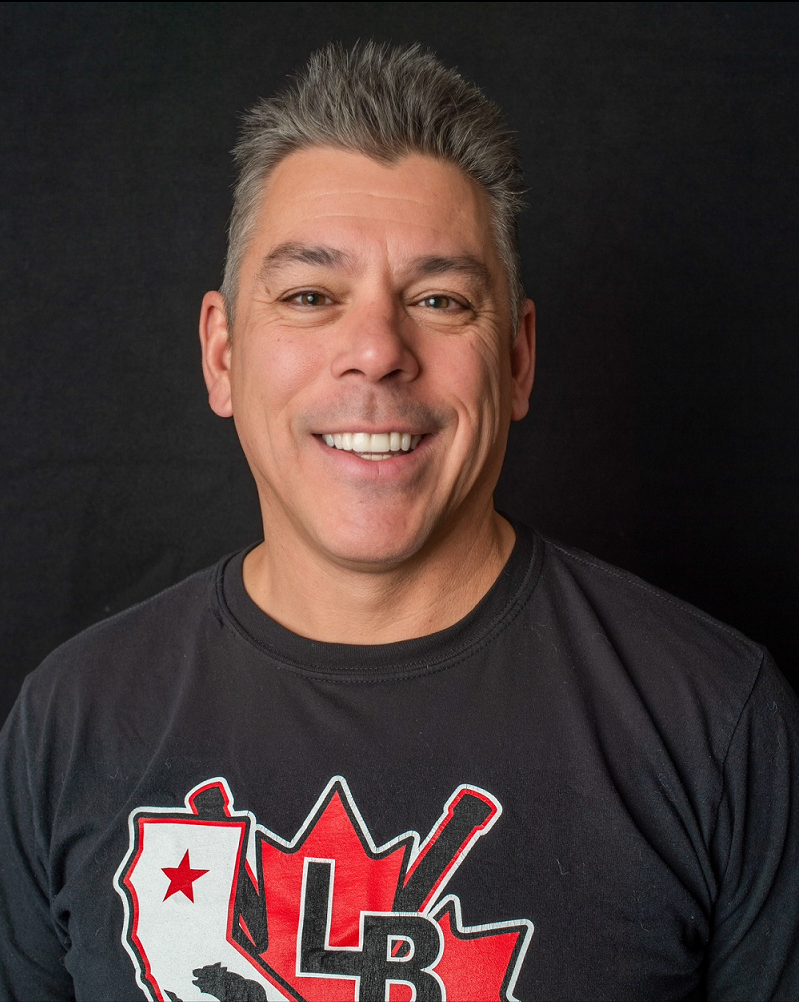
Luc Beausoleil, Co Owner-Head Coach, Ventura Vikings Jr. Hockey Club
I’m Luc Beausoleil, and it’s a true privilege to share my transition from athlete to entrepreneur, a journey that’s been both challenging and incredibly rewarding.
My path from professional hockey player to entrepreneur wasn’t just a career change; it was a life transformation. The skills and values I embraced on the ice —resilience, discipline, and teamwork—became my guiding principles in the world of business. These attributes fueled my success as I ventured into entrepreneurship, particularly as the co-founder of the Ventura Vikings Junior Hockey Team. Here, I’ve applied my sports passion to build a venture that reflects my love for the game and my commitment to innovation and growth.
Beyond the Ventura Vikings, my entrepreneurial spirit led me to establish LB Hockey, offering skill sessions and camps, managing a pro shop, and currently owning The Crossbar snack bar within the rink. Each venture has been a testament to leveraging athletic discipline in business contexts.
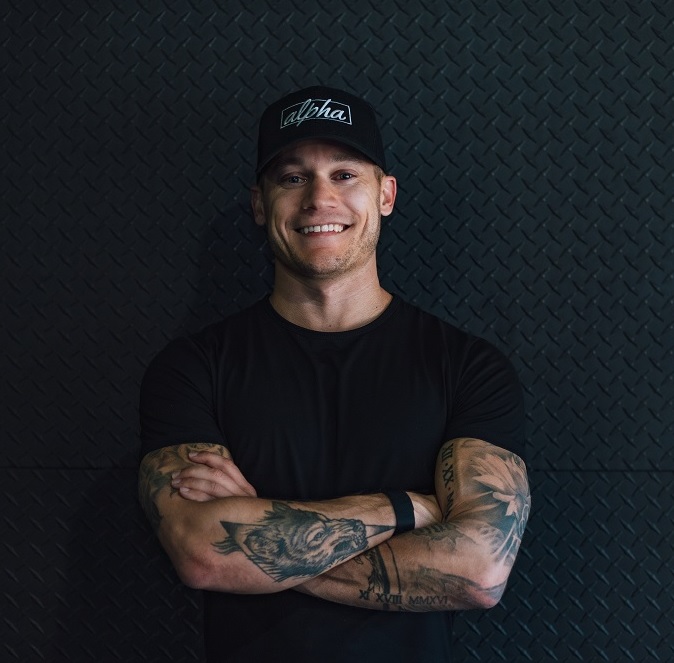
Sam Tooley, Co-Founder, Alpha Fit Club
Going into business was a full-circle moment for me. The only place that ever felt like home to me was on the track and in the gym. It always served as my outlet. After college, when I felt lost about my career path, I returned home to coach at my high school. It was almost an immediate feeling of, “This is what I am meant to do.” Coaching brought me a deep sense of fulfillment, a feeling most people, in my experience, spend their lives searching for. I knew I needed to continue pursuing that feeling.
One of our core principles in high school was to be a good citizen. My coach was a Yoda-like, military-minded man who held us to a standard. The number one team rule was to be a good citizen. However, you want to slice that, for me, that meant showing up every single day with intention and being a good person. There are endless attributes required to be an entrepreneur, but I genuinely believe that good things will come to those who show up with relentlessness paired with a sense of goodness. Another important lesson is that things will happen outside your control; what matters most is how you respond. All we can control is our effort and our attitude, both of which we were reminded of daily on the track.
Building on the idea of responding effectively, our largest challenge to date was the pandemic. Our doors were forced to shut only nine months after opening. We felt lost and clueless. I returned to the core principle of being a good citizen– showing up with intention and being a good teammate. During that uncertain time, this meant being thoughtful in our approach, a good friend to our business partners, a good leader to our employees, and a caring provider to our customers. People simply needed good people at that moment. We moved relentlessly, focused on what we could control – our effort and attitude, and how we responded. If you hold yourself to a high standard in how you show up, everything will fall into place.
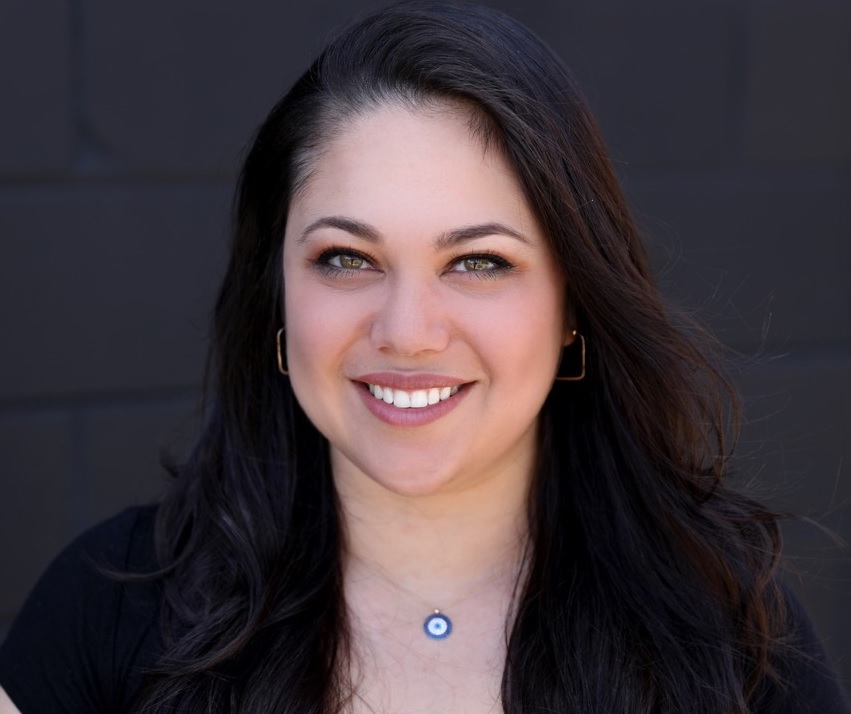
Suzanna Alsayed, CEO and Founder, Evolutz
As a former gymnastics athlete, I was pre-selected to represent Canada at the 2012 Summer Olympics. However, a career-ending injury sidelined me. Since then, I’ve pursued my Ph.D. and founded three successful companies, including Evolutz, an independent global branding and marketing agency. Some skills and lessons I’ve learned from sports that have contributed to my success in the corporate world are teamwork, leadership, and communication.
Teamwork
Sports often require collaboration and cooperation among team members to achieve a common goal. This teaches individuals how to work effectively with others towards a shared objective, a crucial skill in corporate settings where teamwork is essential for project success.
Leadership
In terms of leadership in sports, individuals often take on leadership roles, whether as team captains, coaches, or mentors. These experiences teach them how to motivate and inspire others, make decisions under pressure, and take responsibility for their actions, all of which are valuable traits in corporate leadership positions.
Communication
Lastly, effective communication is vital in both sports and the corporate world. Sports teach individuals how to convey ideas clearly, listen actively, provide constructive feedback, and resolve conflicts diplomatically, all of which are essential for effective collaboration and relationship-building in the workplace.

Amanda Hazer, Founder, Amanda Hazer Consulting
I work with elite women athletes (collegiate, olympic + professional) who are preparing for, actively transitioning out of sports, or those who have retired and are now in executive positions. I work with current and former athletes from Serena Ventures, USWNT, North Carolina Courage, Penn State, Northwestern, Portland State, and more. With my clients, we work on understanding the application of their skills and experiences in the athletic realm to their current or desired roles in business. There are so many amazing stories of perseverance in overcoming what can be an incredibly difficult loss of identity with their sport and stepping into their next chapter.
In general, the skills and lessons that get translated to the workplace are the following:
Once these athletes work through what their identity is after sports — who they are, what they’re passionate about, what they want to dedicate their time towards, and finding the right team of people to support them — there is no stopping their ability to commit to a mission with loyalty and determination.
Their experience with committing to a long-term goal and putting in the work on a daily basis to see incremental changes proves to be incredibly valuable to organizations that require culture carriers to bring a team of people together towards a common goal.
Finally, a lot of former athletes were involved in team sports. If that’s part of their experience, this is a direct translation to the workplace. The application of having collaborators (team members), a leader (coach), and a clear goal to tackle allows their athletic prowess to shine in these moments because they know how to be a team player when to step up when the time comes, and how to celebrate along the way. Hire women athletes!

Amanda Russell, Executive Producer/Former elite runner at Running For Their Lives
A world-class distance runner, Amanda’s accomplishments had earned her an automatic spot in the 2008 Beijing Olympic trials—before a life-altering injury brought her career to a halt. Rather than giving up, Amanda took the curveball life threw at her as an opportunity to rewrite her story. Against all odds, she not only recovered but forged a new path launching a transformative online fitness and lifestyle community: Fit, Strong & Sexy.
It was through this platform that Amanda began her journey as a pioneer in Influencer Marketing. Recognizing the power of YouTube to grow an audience, Amanda realized an opportunity that most top marketers of the time overlooked — the power to convert to her own platform. Her strategy paid off.
She co-founded the Interesting Agency, offering full-service brand strategy, marketing, and content production services, eventually selling to take the helm as the CMO of the world’s largest legacy fitness brand — Valeo Securities, where she’s heading up a re-brand and international re-launch as Valeo Fit.
Always looking for a challenge, Amanda took her expertise to academia.
With accolades as one of YouTube’s “Next Top Fitness Channels,” it was clear she had her finger on the pulse. Today, more than 80,000 subscribers still wait breathlessly for her next upload.
This same innate digital acumen led Amanda, now a widely recognized marketing thought leader, to expand the application of her expertise to other markets.
After just two months, Amanda had grown her channel to 1 million views.
With Influencer Marketing becoming the buzzword du jour, she saw first-hand how many companies were wasting resources on fluffy, one-off campaigns that failed to achieve real results. She channeled her deep experience, stellar industry reputation, and dissatisfaction with the status quo into developing the world’s first fully accredited program in Influencer Marketing at UCLA.
Whether Amanda is motivating a roomful of C-suite decision-makers to take on a high-impact collaboration, inspiring a group of renaissance women to achieve their potential, or teaching future marketing pros how to be unforgettable, Amanda is a tornado in a tutu and combat boots with a mission to help you find the key to your success.

Peter Nielsen, Health and Fitness Coach, Zurvita
After winning a world-class bodybuilding championship I realized I didn’t want to work for anyone and I wanted to capitalize on my story and journey. I remember with the prize money buying my first Mercedes-Benz and then I also remember six months later not being able to put gas in the car. That was a pivotal moment in my life realizing you could be on the top of your game but you need to be able to maintain that lifestyle.
Born with Crohn’s disease and having faced two near-death experiences, I seized the opportunity provided by my championship title to share my story with the world via national TV, conveying the message that if I could overcome adversity, so could others. I turned my physical challenge and bodybuilding championship into a small fitness Empire by getting into personal training, owning several health clubs throughout the country as well as physical therapy businesses. I started up the TV show “Peter Principles,” and let me tell you, it’s been quite the journey. My name became the brand, and it’s been incredible reaching millions worldwide, inspiring people to dive into health, fitness, nutrition, and even spiritual growth.
As a bodybuilder, I had to adhere to strict training regimens, dietary plans, and lifestyle habits. This discipline and commitment prepared me for the rigorous demands of entrepreneurship, where consistency and perseverance are essential for success.
Achieving success in bodybuilding requires setting specific, measurable, and achievable goals. I believe that my ability to set and focus on my goals helped me in defining and pursuing my business objectives with clarity and determination.
Dealing with Crohn’s Disease and pushing through the physical and mental challenges of bodybuilding instilled a strong sense of resilience. In entrepreneurship, facing setbacks, rejection, and obstacles is inevitable, and my experiences as an athlete undoubtedly equipped me with the resilience needed to navigate such challenges.
In bodybuilding, athletes are constantly striving to improve their physique, strength, and performance. This mindset of continuous improvement translates seamlessly into entrepreneurship, where there is always room for growth, innovation, and learning.
In the early days, my biggest challenges were having a physical condition called Crohn’s disease that has no cure, and also I come from a poor family. Amidst these obstacles, I learned a vital lesson: I learned to speak life into myself regardless of not having the resources or living with an incurable condition. This mindset became my driving force, propelling me forward like rocket fuel. I had a vision and I saw myself healthy and winning and ultimately, entrepreneurial.
Another lesson that I learned moving from Brooklyn, New York to Michigan was to take risks. One of the biggest reasons why people fail is that most people don’t get started in the first place because of fear of failing. I came to Michigan with $600 in my pocket and failure wasn’t an option for me. I worked hard constantly and always had a vision of where I wanted to go. I never ever had Plan B. If you do have a Plan B chances are you will use it. By having a positive attitude and putting in the sweat equity and constantly moving forward, I became a millionaire on paper by 28 years old.
Always fill your mind and heart with gratitude, being grateful for the blessings you possess, rather than dwelling on what you don’t have. The focus of our thoughts shapes our reality. Choose to speak life into your career, relationships, and health. And lastly, the words you speak hold the power to shape your future, so speak positivity and steer clear of negativity.
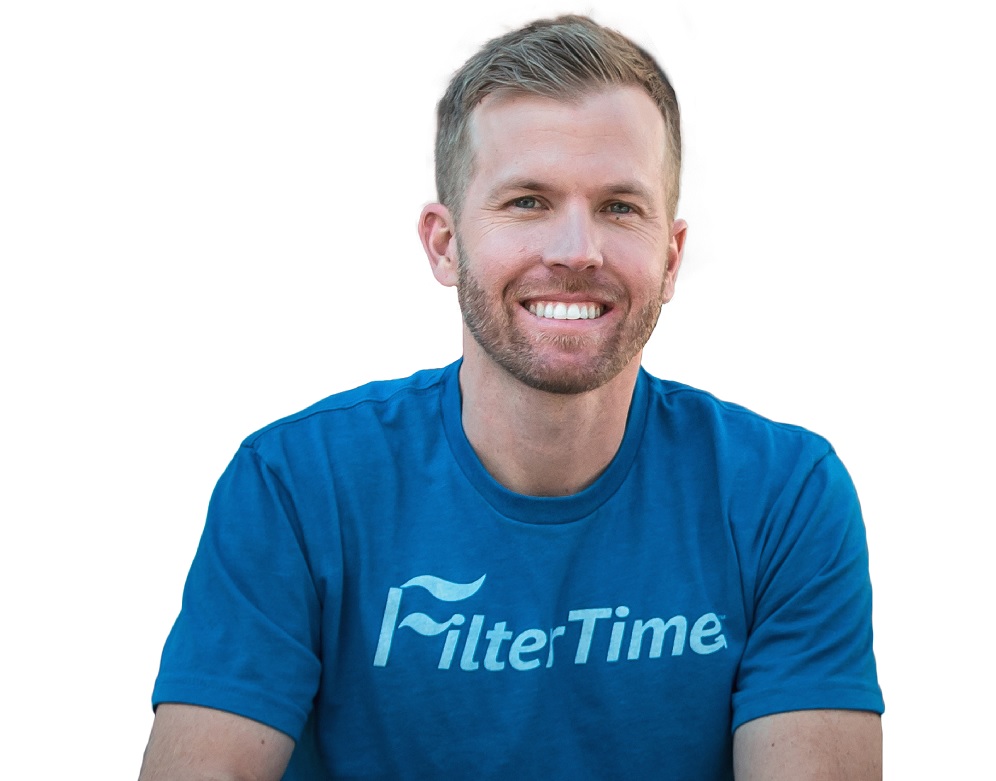
Blake Koch, Founder, FilterTime
When I found myself let go from the race team and suddenly without income, it was a hard realization that I needed to have something beyond my driving career to rely on. It took a few weeks to wrap my head around what direction to pivot in. The inspiration for FilterTime stemmed from my own struggle with severe allergies that impacted my breathing and the tendency to forget to change my air filter regularly. This idea started to take shape over time, as I recognized the importance of maintaining good air quality at home and that if I needed a hassle-free solution, others likely did too. I distinctly remember one instance when I was driving back from Lowe’s, having forgotten why I even went there in the first place – it was to pick up air filters! In addressing this personal issue, I found the seed for a business opportunity.
The pivotal moment came when I found a partner in Dale, who brought valuable business experience to the table and shared my enthusiasm for the concept. He didn’t just want to be a silent investor or brand ambassador; he wanted to be a co-owner. With his support, we took the next steps to turn our idea into a reality, launching our air filter replacement service to help others like us manage their indoor air quality as seamlessly as possible.
Transitioning from my career as an athlete to entrepreneurship has been somewhat of a natural evolution, as many of the skills and mindsets I developed on the track have seamlessly translated into the business world.
My ability to build a fan base as an athlete has translated into acquiring customers in entrepreneurship, emphasizing the importance of relationships and value delivery. The leadership skills I’ve developed have allowed me to guide teams toward common goals, crucial in both arenas.
Setting big goals and working tirelessly to pursue and achieve them is what both sports and business are all about. Learning to bounce back from setbacks in my athletic career has been super helpful when facing the challenges of running a business. Both worlds teach me that failure is just part of the journey, pushing me to keep moving forward with flexibility and a commitment to doing my best. I’ve had more setbacks than successes, but I’ve learned that you can’t let small failures or problems get you down too long because it’s what you can take from those lessons that lead you to the next big breakthrough.
Being an entrepreneur definitely comes with its fair share of challenges, and one of the biggest ones for me has been the sense of loneliness that can sometimes accompany the journey. When you’re the one calling the shots and bearing the weight of responsibility, it can feel like a solitary road and an immense amount of pressure. But I’ve figured out a couple of tricks and strategies that help me stay on track.
Setting daily goals has proven effective, allowing me to break down larger objectives into manageable tasks while fostering a sense of accomplishment along the way. I’ve also learned the importance of surrounding myself with people who are better than me in certain areas where I may fall short. While having “yes men” around may feel comforting, I’ve come to appreciate the value of constructive criticism and feedback because that is what ultimately propels growth. Building a team and choosing business partners that push you and aren’t afraid to challenge your ideas is what will eventually lead to your success.






